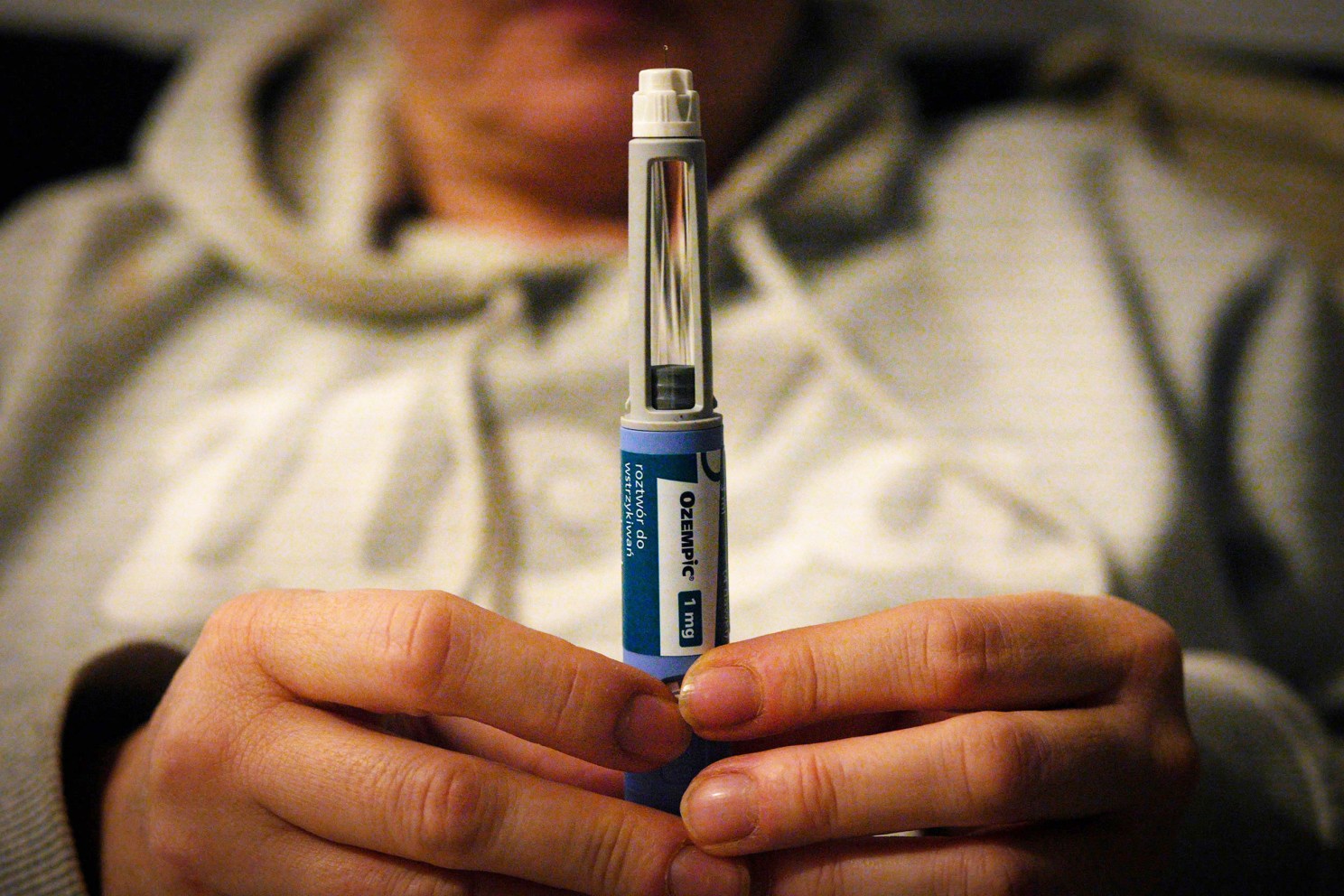
An injection pen used by Ozempic patients.
Jaap Arriens/Sipa via AP Images
Health
Weight-loss surgery down 25 percent as anti-obesity drug use soars
Study authors call for more research examining how trend affects long-term patient outcomes
A new study examining a large sample of privately insured patients with obesity found that use of drugs such as Ozempic and Wegovy as anti-obesity medications more than doubled from 2022 to 2023. During that same period, there was a 25.6 percent decrease in patients undergoing metabolic bariatric surgery to treat obesity.
The study, by researchers at Brigham and Women’s Hospital, in collaboration with researchers at Harvard T.H. Chan School of Public Health and the Brown School of Public Health, is published in JAMA Network Open.
“Our study provides one of the first national estimates of the decline in utilization of bariatric metabolic surgery among privately insured patients corresponding to the rising use of blockbuster GLP-1 RA drugs,” said senior author Thomas C. Tsai, a metabolic bariatric surgeon at Brigham and Women’s Hospital.
Using a national sample of medical insurance claims data from more than 17 million privately insured adults, the researchers identified patients with a diagnosis of obesity without diabetes in 2022-2023. The study found a sharp increase in the share of patients who received glucagon-like peptide-1 receptor agonists, or GLP-1 RAs, during the study period, with GLP-1 RA use increasing 132.6 percent from the last six months of 2022 to the last six months of 2023 (from 1.89 to 4.41 patients per 1,000 patients). Meanwhile, there was a 25.6 percent decrease in use of bariatric metabolic surgery during the same period (from 0.22 to 0.16 patients per 1,000 patients).
Among the sample of patients with obesity, 94.7 percent received neither form of treatment during the study period (while 5 percent received GLP-1 RAs and 0.3 percent received surgery). Compared to patients who were prescribed GLP-1 RAs, patients who underwent surgery tended to be more medically complex.
“For now, metabolic bariatric surgery remains the most effective and durable treatment for obesity. National efforts should focus on improving access to obesity treatment — whether pharmacologic or surgical — to ensure patients can receive optimal care,” said Tsai, who is also an assistant professor of surgery at Harvard Medical School and an assistant professor in health policy and management at Harvard T.H Chan School of Public Health.
Tsai notes that while GLP-1 RAs can effectively treat obesity and related conditions (such as diabetes), these medications have been limited by high costs, limited supply, and gastrointestinal side effects that may prompt treatment cessation and subsequent weight regain.
“As patients with obesity increasingly rely on GLP-1s instead of surgical intervention, further research is needed to assess the impact of this shift from surgical to pharmacologic treatment of obesity on long-term patient outcomes,” Tsai said. “With the national decline in utilization of metabolic bariatric surgery and potential closure of bariatric surgery programs, there is a concern that access to comprehensive multidisciplinary treatment of obesity involving pharmacologic, endoscopic, or surgical interventions may become more limited.”
“These results also highlight an opportunity to further expand uptake of surgical and pharmacologic treatments for obesity and related comorbidities,” said co-author Ateev Mehrotra, chair of the Department of Health Services, Policy and Practice at the Brown University School of Public Health. “Metabolic bariatric surgery and GLP-1 RAs are both effective interventions for patients with obesity, yet less than 6 percent of patients in our study received either form of treatment.”
Considering these results, the authors encourage clinicians and policymakers to continue to monitor access to effective obesity treatment amid a rapidly evolving landscape of treatment options. In addition, further research is needed to understand the tradeoffs between use of surgical intervention and increasingly popular GLP-1 RAs to treat obesity.
Funding/disclosures: Tsai reported receiving grants from the National Center for Advancing Translational Sciences, National Institutes of Health to Harvard Catalyst, the Harvard Clinical and Translational Science Center, and financial contributions from Harvard University and its affiliated academic health care centers.
